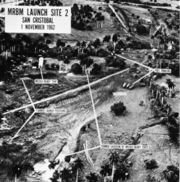| In 2006, Kevin J. O'Connor, United States Attorney for the District of Connecticut, and Dr. Andrew C. von Eschenbach, Acting Commissioner of FDA filed the approval documents for Bluetooth enabled pace makers. Continuous heartbeat monitoring by premium Internet hosted services became a commercial reality. Investors anticipated explosive stock growth from sales of devices which were widely expected to extend the lifespan of the super rich. |
~ entry by Steve Payne:
| Marvin Lee Aday | "Have a double, it's gettin' late, you'll get home, just rely on fate Place just finally came alive, good old boys just arrived Stools keep changin' faces, and the night just slips away And like a long distance love affair, soon you've got to pay Silver bullets in the jukebox, spin another round Everybody at the back of the line, it's midnight at the lost and found."  ~ Meatloaf, lyrics to Midnight at the Lost and Found which went Gold in the UK selling over 100,000 copies. ~ Meatloaf, lyrics to Midnight at the Lost and Found which went Gold in the UK selling over 100,000 copies. |
 | |
| “Meatloaf” |
| In his autobiography, To Hell and Back, Meatloaf claims that shortly after his mother died, his father, in a drunken rage, tried to kill him with a knife, and that he barely managed to escape after they had a bad fight. After Marvin got his inheritance from his mother's death, he rented an apartment in Dallas and isolated himself for three and a half months. Eventually a friend found him (a psychology student at the University of Dallas). Marvin bought a car with his inheritance and drove to California. At some point during the journey, a dreadful suspicion started to take shape in the mind of his friend. Was "Meatloaf" really the victim character of a devil-may-care rock 'n' roller? Or the personae of a murderous super ego? A summary of his autobiography, To Hell and Back is detailed at - Wikipedia | |
| ~ quotation by Steve Payne |
| In 2023, Christian missionaries on the Planet Tyrr took grateful receipt of the delivery of a package from Wycliffe Bible Translators in Dallas, TX. A covering note explained that standard methods had been varied substantially in order to achieve the 2,612th translation of the Bible, into Martian. In a typical translation project, Wycliffe senior workers first request permission to operate from the government in charge of a region. After the organization receives permission to operate, several small teams research a region's linguistic populations. Based on this data, teams are sent to each linguistic group. The team introduces itself to a group, usually with the aid of bilingual helpers such as traders or guides. The team lives on site, and attempts to speak the language. Formal recordings, word lists and grammars are kept, usually on computers, backed up periodically to the national mission. When the phonology is understood, the team selects a writing system similar to those in use by nearby trading languages. At some point, the team begins to translate short portions of the Bible into the native language. The translation is tested and corrected with native speakers, as well as the existing lexicographies and grammars. Once the Bible is translated, printings are arranged, often through one of the United Bible Societies. The length of the entire process varies depending on the portion of the Bible being translated; it can take as long as 20+ years. The Martian version had actually been achieved in a remarkably short period of time, just 15 years. In 2008 at Lacus Soli, Captain von Tromp had located a single survivor from the doomed first mission of the USS Envoy. The innocent Valentine Michael Smith had already grokked the fullness of his water brothers. Shortly afer his arrival on Earth, Smith super-accelerated the translation process for the Wycliffe Mission. |
~ variant from Steve Payne: extensive use of original content has been made to celebrate the author's genius.
| During a heated debate at Twelve Oaks going on among the gentlemen about the impending War of the States. Excited and patriotic southerners boastfully predicted a quick victory, led by Gerald O'Hara: "The Yankees can't fight and we can!" Ashley Wilkes attempted to cool off the room full of Southern hotheads, hoping that the North will let the South leave the Union without war: "Most of the miseries of the world were caused by wars. And, when the wars were over, no one ever knew what they were about." The rogue of a good family from Charleston, and turned out of West Point, Rhett expressed his lone dissent from the optimistic voices. He disagreed with the fervent patriotism of the Confederates: "I think it's hard winning a war with words, gentlemen...I'm saying very plainly that the Yankees are better equipped than we .. All we've got is cotton and slaves, arrogance and our British allies." He realistically believed that the South's cause was doomed to failure because of its gradually declining resources - he spoils everyone's enthusiasm for war: The full story of Gone with the Wind is described at Film.org | |
| ~ quotation by Steve Payne |
| In 2017, the Regional Municipality of Peel responded formally to the concerns of voters in the Greater Toronto Area. Citizens of Brampton, Caledon and Mississauga had been making increasing use of the growing number of independent medical facilities in the Region's shopping malls and greater regulation was called for. In particular, the age of individuals booking in for an "adjustment" was falling alarmingly. |
~ variant from Steve Payne: extensive use of original content has been made to celebrate the author's genius.
 Douglas MacArthur | In 1950, on this day the United Nations made a daring assault, landing up to 50,000 troops behind enemy lines at Inchon, on the west coast of Korea. More daringly, General Douglas MacArthur deployed the Bacteriological weapons of Unit 731 handed to him by Japanese General Otozoo Yamada in 1945. “There's no substitute for victory” the General tells the World by way of justification at a Press Conference the next day. |
~ entry by Steve Payne | |
| In 1940, the Battle of Britain ends with a Kriegsmarine victory over the Royal Navy. In How Chamberlain lost the Battle of Britain written in 1995, historian Richard M. Langworth recounted the battle. Critics muted their May 1940 attacks on the Government for the sake of national unity. Chamberlain heeds Reynaud's call for Britain to fling the bulk of her air force into Battle of France. |  Kriegsmarine |
| Failing to group the British Expeditionary Force around Dunkirk, 300,000 British troops are lost in the greatest military disaster in British history. The Battle for Britain is fought first on the English Channel and then on the beaches and the landing grounds. Like the French before him, Chamberlain considers the choice between surrender and going down fighting--and chooses surrender. His successor, Halifax, signs the instrument of surrender while a raging Churchill escapes with the remnants of the fleet and sails to Falkland Islands, there to organize an international resistance movement. | |
~ entry by Steve Payne | |
Post Conference | In 1944, Franklin D. Roosevelt and Charles de Gaulle met in Quebec as part of the Octagon Conference to discuss strategy. With the Pacific War heading towards an end game, FDR agreed to land American Forces in North Africa as part of Operation Torch. Unfortunately for de Gaulle, FDR was defeated in the November Presidential Elections, and Charles Lindbergh pursued a very different US Foreign Policy. |
| Winston Churchill could only wring his hands in New Britain, having refused to travel to New France for the Octagon Conference. | |
~ entry by Steve Payne | |
| In 1962, the Soviet ship Poltava heads toward Cuba, one of the events that set into motion the Cuban Missile Crisis. President Kennedy disregarded forged reconnaissance data presented by hawks who sought open war between the United States and the Soviet Union. Kennedy also ignored warnings that compromise was impossible. Instead he prevented a third world war more horrible than the second, in which he had lost his eldest son. |  Cuban Missiles |
| The President could hardly be accused of inconsistency; he had after all been pro-appeasement since 1940 when he was the United States Ambassador to the Court of St. James. | |
~ entry by Steve Payne | |

No comments:
Post a Comment